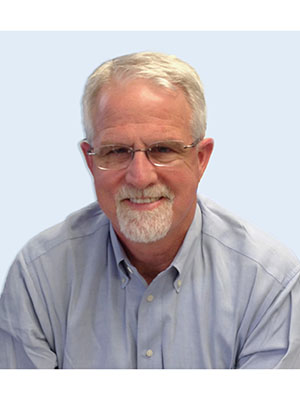New pediatrics chair

JOHNSON CITY (September 30, 2014) – When Dr. David Wood arrives on the East Tennessee State University campus as the new pediatrics chairman for the Quillen College of Medicine on Oct. 1, he will be wearing more than one hat.
Wood has been hired to serve not only as the new pediatrics chair, but also as the chief medical officer at Niswonger Children’s Hospital, a Mountain States Health Alliance facility.
“A community-based medical school like Quillen achieves its goals through strategic partnerships, and the most critical partnerships are those with our clinical affiliates,” said Dr. Robert Means, dean of the college of medicine. “Dr. Wood’s dual role with both the Quillen College of Medicine and Niswonger Children’s Hospital ensures alignment of our goals, to the advantage of both. With his background in general pediatrics, health equity and healthcare transitions, Dr. Wood has the right clinical and scholarly fit for this region and this partnership.”
Steven Godbold, CEO of Niswonger Children’s Hospital, also sees the new partnership as a promising one.
“Niswonger Children’s Hospital and Mountain States Health Alliance have made the expansion of pediatric subspecialties and the improvement of child well-being our priorities and we enthusiastically praise ETSU for finding us a physician leader who can keep us aligned toward these goals,” Godbold said. “Dr. Wood is internationally known in pediatrics and we are thrilled to have him as the first chief medical officer of Niswonger Children’s Hospital.”
For Wood, who comes to Northeast Tennessee from Jacksonville, Fla., the new role is most exciting because of the opportunity to build more services for kids at the primary care level in the region.
“I hope that we expand the scope of services available for children so they can stay local and not have to travel for their health care,” he said. “We will recruit specialty care to improve the services and improve the general health system by making it a family-centered model.”
Tying together the strengths of the university and the children’s hospital, Wood said, is a great way to teach future health care professionals.
“Health care is changing dramatically. Technology is changing it; finances are changing it; the health problems we’re facing are changing it,” he said. “A very different system is needed. The university is training the future physicians of the region and I hope we are able to be innovative in the way we provide services so students can see where health care is going.
“I want ETSU to be a leader in answering this question: How does the health care system address the needs of rural children in a way that maintains quality and allows support for families?”
A native Californian, Wood said his own career has been characterized by trying to determine the health issues of poor children and how to build health systems that better meet their needs.
“Between college and medical school I went to Ecuador for a year. That was a defining moment for me,” said Wood, adding that he grew up in a middle-class family. “I got to see poverty first-hand. I came back very much changed.”
In addition to helping poor children, Wood got involved with free clinics in Los Angeles to work with the homeless.
“Health care should be tailored to a patient’s needs, not the ability to pay,” he said, pointing out that he is looking forward to being a point person in strengthening services through his dual role with ETSU and the hospital.
While the dual role might seem daunting to some, Wood is used to wearing several hats at one time.
At the time of his departure from Jacksonville, Wood was serving as the director of the Global Health Education Program at the University of Florida’s College of Medicine as well as the medical director of the university’s Jacksonville Health Equity Research Organization. He was also a statewide medical consultant for the Florida Health Department’s children’s medical series, a professor at the university, medical director of the Jacksonville Health and Transition Services Program and director of the UF Center for Health Equity and Quality.
With his move to this area, Wood said he will focus on how to best organize care for children in general, and then for children with specific conditions.
“With good, coordinated, high-quality services, children with very serious diseases can almost have a normal life expectancy,” he explained. “Without that, though, the outcomes are much worse. This is an opportunity to work together to be a strong, powerful voice for the children in the community.”
Wood and his wife, Julia, have three grown children. Their first grandchild is due in November.